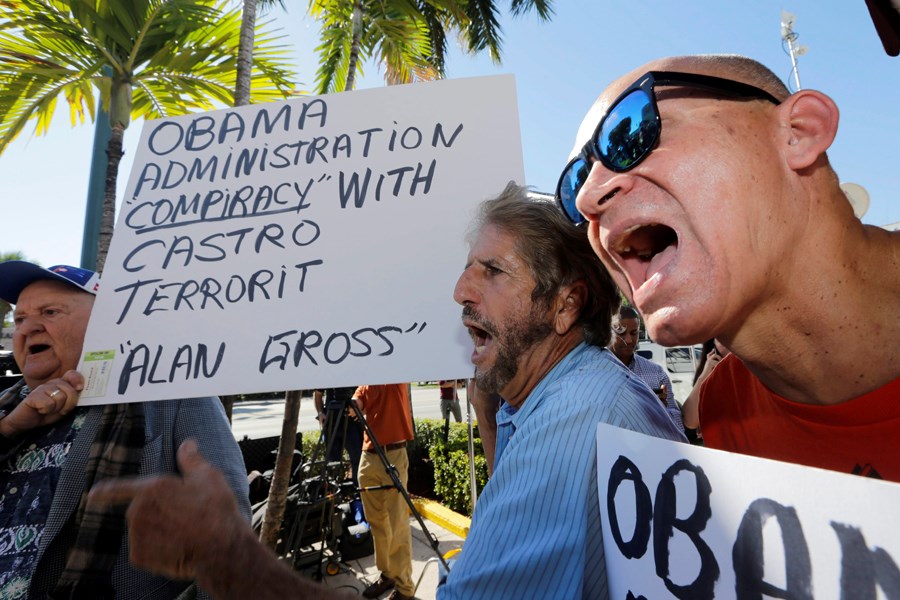OTTAWA - The White House is extending its thanks to Canada for hosting the meetings that let to the United States and Cuba agreeing to re-establish diplomatic relations and open economic and travel ties.
Senior Obama administration officials say Canada was "indispensable" in hosting the majority of the secret talks, which took place for more than a year.
Prime Minister Stephen Harper tried to play down Canada's contribution, telling the CBC in an interview that Canada did not mediate or direct the talks. But he called Wednesday's announcement an "overdue development."
"We facilitated places where the two countries could have a dialogue and explore ways of normalizing the relationship," Harper said. "I personally believe changes are coming in Cuba, and this will facilitate those."
Nonetheless, the prime minister said, those changes will come slowly to an economy and a society he called "overdue for entry" into the 21st century.
"Probably when the current generation passes, you'll see some changes," he said. "Although we have some tainted democracies in the hemisphere, this is really the only place where there are elections that completely non-competitive."
Harper told another interviewer in 2009 that the American strategy towards Cuba - its half century-old embargo - had simply "not worked."
U.S. officials say the first face-to-face talks with the Cubans took place in Canada in June of last year, with several other discussions taking place since then.
Harper also issued a statement congratulating the two countries on reaching their agreement, which marks a historic shift in U.S. policy after a half-century of enmity towards Cuba dating back to the Cold War.
The announcement coincided with the release of American prisoner Alan Gross, as well as a swap for a U.S. intelligence asset held in Cuba and the freeing of three Cubans jailed in the U.S.
Pope Francis was also personally engaged in the process and sent separate letters to Obama and Castro this summer urging them to restart relations.
"Canada supports a future for Cuba that fully embraces the fundamental values of freedom, democracy, human rights and the rule of law," Harper said in his statement.
"Canada was pleased to host the senior officials from the United States and Cuba, which permitted them the discretion required to carry out these important talks."
NDP foreign affairs critic Paul Dewar said Canadian diplomats deserve thanks for their hard work on the file.
"This is an example of constructive diplomacy, something that Canada is very good at," Dewar said in a statement.
"Today is a great day for those who believe in engagement as the most effective tool of diplomacy. We should see more of this constructive approach in Canadian foreign policy."
Liberal Leader Justin Trudeau tweeted his own congratulations, calling his party a "friend to both nations."
The iconic former Cuban president Fidel Castro attended the funeral of Pierre Trudeau in 2000, eschewing his traditional military fatigues for a dress suit. In the 1970s, the two leaders struck up a friendship after the elder Trudeau visited Havana.
At an event in British Columbia, Trudeau recalled watching Castro and then U.S. President Jimmy Carter speaking at Montreal's Notre Dame Basilica. Carter later became the first U.S. president - in or out of office - to visit Cuba since its 1959 communist revolution.
"I think Canada has played, historically, an important role as being a buffer, a go-between," Trudeau said.
- With files from The Associated Press



